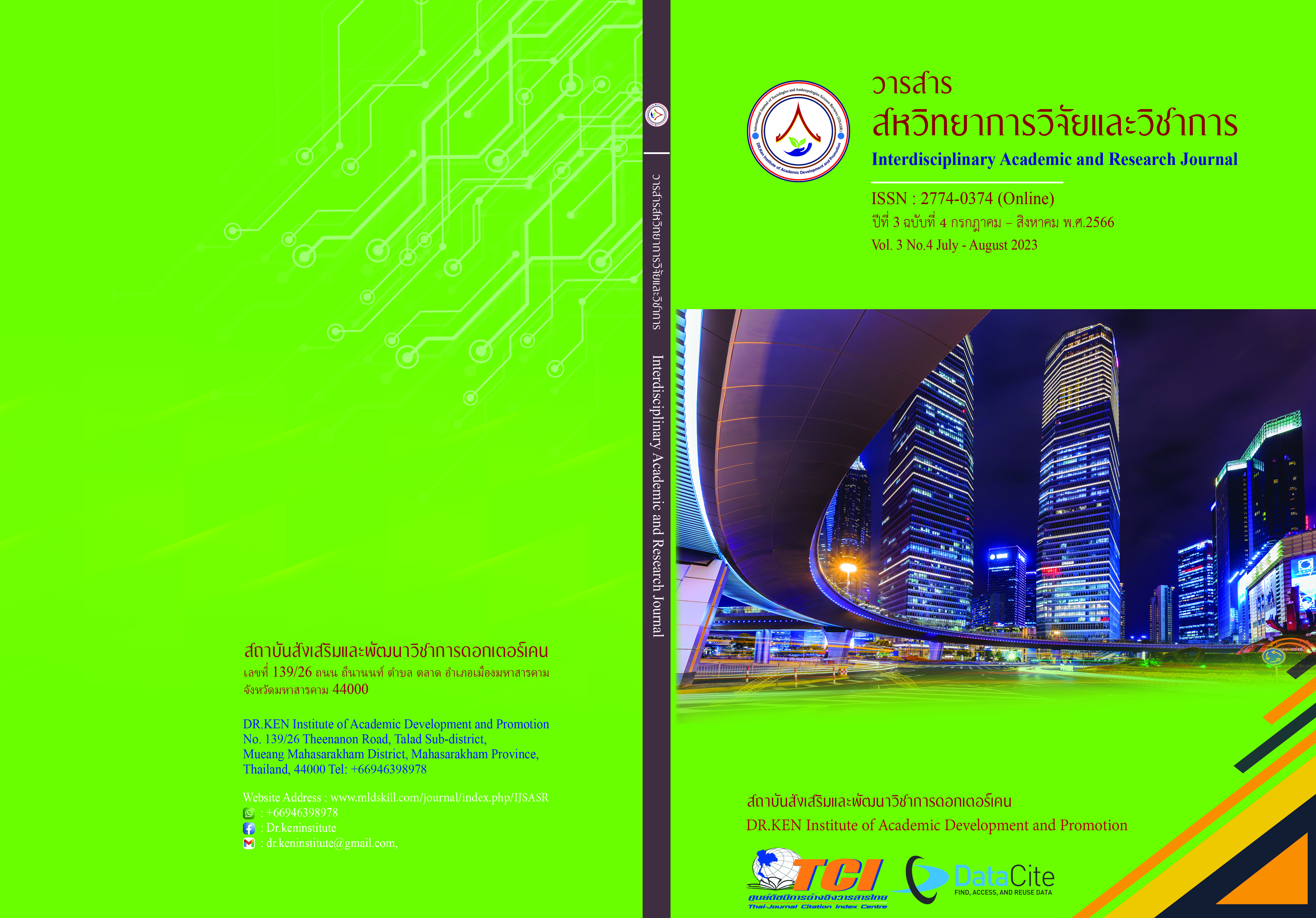A Development of Social Engineer Skills Indicators for Students’ Udon Thani Rajabhat University
DOI:
https://doi.org/10.14456/iarj.2023.196Keywords:
Social Engineer Skills; , Indicators; , Confirmatory Factors AnalysisAbstract
Udon Thani Rajabhat University create a new methodology of learning experience management beyond classroom by incubate the soft skill for their students through the process of social engineering, for the reflect achievements of this it necessary to data from instrumental containing indicators that can show offer characteristic individual. The purposes of this research were to develop of the social engineer skills indicators and to test of the goodness of fit of the structural model of social engineer skills indicators with empirical data. The method of research was divided into two phases, firstly, to synthesize the literature that related for build a indicators framework for validity test in the content area, secondly, to testing of the consistency of the model with empirical data. The sample was 121 undergraduates in UDRU Youth of Challenge and Change project. The research instruments were a four-level rating scale questionnaire has a content validity between of 0.80 to 1.00 and reliability 0.730. The statistic used for data analyze comprising of mean, standard deviation and confirmatory factor analysis. The research results were as follows; 1) the indicators social engineer skills of students’ Udon Thani Rajabhat university consisted of 4 skills and 20 indicators, in accordance to related principles, perspective and theories 2) the model of social engineer skills has a good consistency with the empirical data (X2/df = 2.940, GFI = 0.910, AGFI = 0.900, CFI = 1, SRMR = 0.018 and RMSEA < 0.001). Therefore, the social engineer skill component indicator has an appropriate component structure, can be used to develop the instrumental for assess social engineer skills of Udon Thani Rajabhat University students.
References
Aaker, D.A., Kumar, V., & Day, G.S. (2001). Marketing research. New York: John Wiley and Sons.
Baruch, Y. (1999). Response rates in academic studies-a comparative analysis. Human Relations. 421-434
Boon-aree, S. (1998). Ethical reasoning: theory and practice. Bangkok: Department of Curriculum and Instruction Development
Chadcham, S. (2004). Confirmatory Factor Analysis. Journal of Education Research and Measurement, 2(1), 15-42
Charoensuk, P. (2010). Development of academic indicators for basic education institutions. Master of Thesis: Khon Kaen University.
Council of University Presidents of Thailand. (2018). Local Development Strategy of Rajabhat University (2017 - 2036). N.P., n.p.
Issaro, N. (2021). The royal guidance on education with mission of Rajabhat University group for higher education institution to developing local. Armed Forces Development Command Journal. 45(2), 53-63
Jongwisan, R. (2017). Human Relation: Human Behaviors in Organizations. Bangkok: KU Press.
JÖreskog, K.G., & SÖrbom, D., (1993). LISREL 8: User’s Reference Guide. Chicago, IL: Scientific Software International, Inc.
Prachanban, P. (2014). The development standards indicators and assessment criteria of learning person characteristic of students in Thailand’s University, Journal of Education Naresuan University, 17(4), 1-13
Rattanamanee, N. (2019). Response rate in quantitative research. Journal of Humanities and Social Sciences Thonburi University. 13(3), 181-188
Sakulsriprasert, C. (2013). Confirmatory factor analysis. Journal of Clinical Psychology, 44(1), 1-16
Sinlarat, P. (2016). Education 4.0 is more than education. 3rd edition. Bangkok: Chulalongkorn University Press.
Tacq, J. (1997). Multivariate analysis techniques in social science research: From problem to analysis. Sage Publications, Inc.
Thammetar, T. (2014). Development of indicators to assess quality for distance education in higher education. Journal of Education Naresuan University, 16(3), 76-84
Tirakanant, S. (2007). Creating a variable measurement tool in social science research: A practical approach. Bangkok: Chulalongkorn University Press.
World Economic Forum. Ten 21st-century skills every student needs. Retrieved from: https://www.weforum.org/agenda/2016/03/21st-century-skills-future-jobs-students/
Downloads
Published
How to Cite
Issue
Section
License
Copyright (c) 2023 Exkarach Deenang, Khanisara Thanyasunthornsakun, Teeraporn Paisan

This work is licensed under a Creative Commons Attribution-NonCommercial-NoDerivatives 4.0 International License.
Copyright on any article in the Interdisciplinary Academic and Research Journal is retained by the author(s) under the under the Creative Commons Attribution-NonCommercial-NoDerivatives 4.0 International License. Permission to use text, content, images, etc. of publication. Any user to read, download, copy, distribute, print, search, or link to the full texts of articles, crawl them for indexing, pass them as data to software, or use them for any other lawful purpose. But do not use it for commercial use or with the intent to benefit any business.
















.png)


